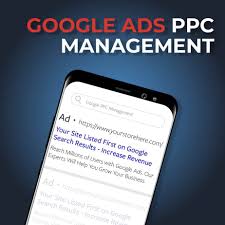The Importance of Effective Google PPC Management
Google Pay-Per-Click (PPC) advertising is a powerful tool for businesses looking to reach their target audience and drive conversions. However, running successful PPC campaigns requires more than just setting up ads and bidding on keywords. Effective Google PPC management is crucial to maximise the return on investment and achieve your marketing goals.
Key Elements of Google PPC Management
Keyword Research: Conduct thorough keyword research to identify relevant terms that your target audience is searching for. Use tools like Google Keyword Planner to discover high-performing keywords with lower competition.
Ad Creation: Craft compelling ad copy that resonates with your audience and includes relevant keywords. Create multiple ad variations to test which ones perform best and continuously optimise them for better results.
Landing Page Optimisation: Ensure that your landing pages are aligned with your ad messaging and provide a seamless user experience. Optimise landing page content, design, and call-to-action buttons to encourage conversions.
Bid Management: Monitor and adjust your bids based on performance data to maximise the visibility of your ads within the budget constraints. Implement bid strategies like automated bidding to improve efficiency and achieve campaign objectives.
Benefits of Effective Google PPC Management
– Increased Click-Through Rates (CTR): Well-managed PPC campaigns can lead to higher CTRs as ads are more relevant to users’ search queries, increasing the likelihood of clicks.
– Improved Quality Scores: By optimising keywords, ad relevance, and landing pages, you can boost your Quality Scores, resulting in lower costs per click and better ad placements.
– Enhanced Conversion Rates: Targeted ads paired with optimised landing pages can drive higher conversion rates, ultimately leading to a higher return on investment for your advertising spend.
Conclusion
Effective Google PPC management is essential for achieving success in online advertising. By implementing best practices in keyword research, ad creation, landing page optimisation, and bid management, businesses can maximise the impact of their PPC campaigns and drive tangible results.
Top 5 Tips for Effective Google PPC Management: Boost Your Campaign Success
- 1. Conduct thorough keyword research to target relevant search terms.
- 2. Create compelling ad copy that highlights unique selling points.
- 3. Use ad extensions to provide additional information and increase visibility.
- 4. Regularly monitor and analyse campaign performance to make data-driven decisions.
- 5. Test different ad variations and landing pages to optimise for better results.
1. Conduct thorough keyword research to target relevant search terms.
To maximise the effectiveness of your Google PPC campaigns, it is crucial to conduct comprehensive keyword research to target relevant search terms. By identifying and focusing on keywords that align with your target audience’s search queries, you can ensure that your ads reach the right users at the right time. Thorough keyword research lays the foundation for creating compelling ad copy, improving ad relevance, and increasing the chances of attracting clicks and conversions.
2. Create compelling ad copy that highlights unique selling points.
To enhance the effectiveness of your Google PPC campaigns, it is crucial to create compelling ad copy that effectively showcases your unique selling points. By highlighting what sets your products or services apart from competitors, you can capture the attention of potential customers and entice them to click on your ads. Emphasising key benefits, special offers, or exclusive features in your ad copy can differentiate your brand and drive higher engagement and conversions. Remember, crafting persuasive and distinctive messaging is essential to stand out in a competitive digital advertising landscape.
3. Use ad extensions to provide additional information and increase visibility.
Utilising ad extensions is a valuable strategy in Google PPC management. By incorporating ad extensions, advertisers can enhance their ads with additional information such as links to specific pages, contact details, location information, and more. This not only improves the relevance of the ad but also increases its visibility on search engine results pages. Ad extensions provide users with more reasons to click on the ad and can significantly boost click-through rates and overall campaign performance. Implementing ad extensions effectively can help businesses stand out from competitors and drive better results from their PPC campaigns.
4. Regularly monitor and analyse campaign performance to make data-driven decisions.
Regularly monitoring and analysing campaign performance is a crucial aspect of effective Google PPC management. By consistently reviewing key metrics such as click-through rates, conversion rates, and cost per acquisition, marketers can gain valuable insights into the effectiveness of their campaigns. This data-driven approach allows for informed decision-making, enabling adjustments to be made in real-time to optimise performance and maximise ROI. By staying proactive in monitoring campaign data, businesses can identify trends, opportunities for improvement, and areas that require attention, ultimately leading to more successful PPC campaigns.
5. Test different ad variations and landing pages to optimise for better results.
To enhance the performance of your Google PPC campaigns, it is crucial to implement Tip 5: Test different ad variations and landing pages to optimise for better results. By creating multiple ad variations and experimenting with various landing page designs, businesses can gather valuable insights into what resonates best with their target audience. Through continuous testing and refinement, advertisers can improve ad relevance, increase click-through rates, and ultimately drive more conversions. This iterative process of testing and optimisation is key to achieving success in Google PPC management and maximising the return on investment.

